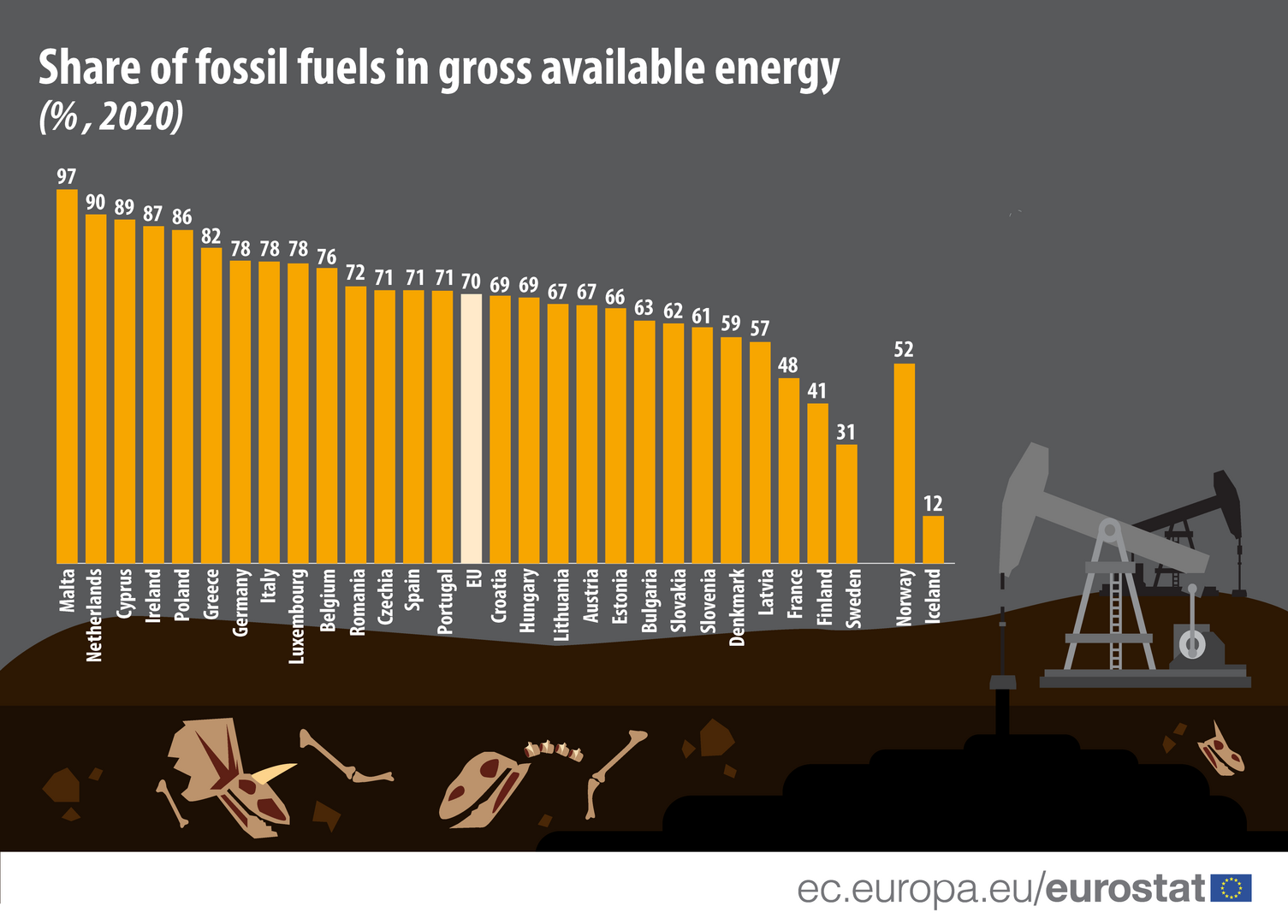Cyprus has made slow progress in easing dependence on fossil fuels for its energy needs, according to 2020 figures released by Eurostat on Wednesday.
These show that fossil fuels accounts for 89 per cent of gross available energy, the third largest share in the EU in 2020, but an improvement from 96 per cent ten years ago.
Malta (97 per cent) was the EU Member State with the highest share of fossil fuels in gross available energy followed by the Netherlands (90 per cent) and Cyprus (89 per cent), Ireland (87 per cent), and Poland (86 per cent).
The EU average was 70 per cent, compared to 71 per cent in 2019.
This percentage has decreased significantly by 13 percentage points (pp) since 1990, the first year for which data are available. This is mostly due to the increase in renewable energy, according to Eurostat.
Over the past decade, all EU Member States registered a decrease in their share of fossil fuels in gross available energy. The largest decrease was measured in Estonia (from 91 per cent in 2010 to 66 per cent in 2020), followed by Denmark (from 81 per cent to 59 per cent) and Finland (from 57 per cent to 41 per cent).
On the other hand, the smallest decrease was measured in Belgium (from 78 per cent to 76 per cent), followed by Germany (from 81 per cent to 78 per cent) and Malta (from 100 per cent to 97 per cent).
The corresponding figure for Cyprus was from 96 per cent in 2010 to 89 per cent in 2020.
Comparing 2020 with 2019, only two EU Member States increased their share of fossil fuels in gross available energy: Lithuania (1 pp increase) and, just marginally, Malta (0.1 pp increase). Belgium’s figures remained the same.
In Cyprus there was a decrease from 92 per cent in 2019 to 89 per cent in 2020.







Click here to change your cookie preferences